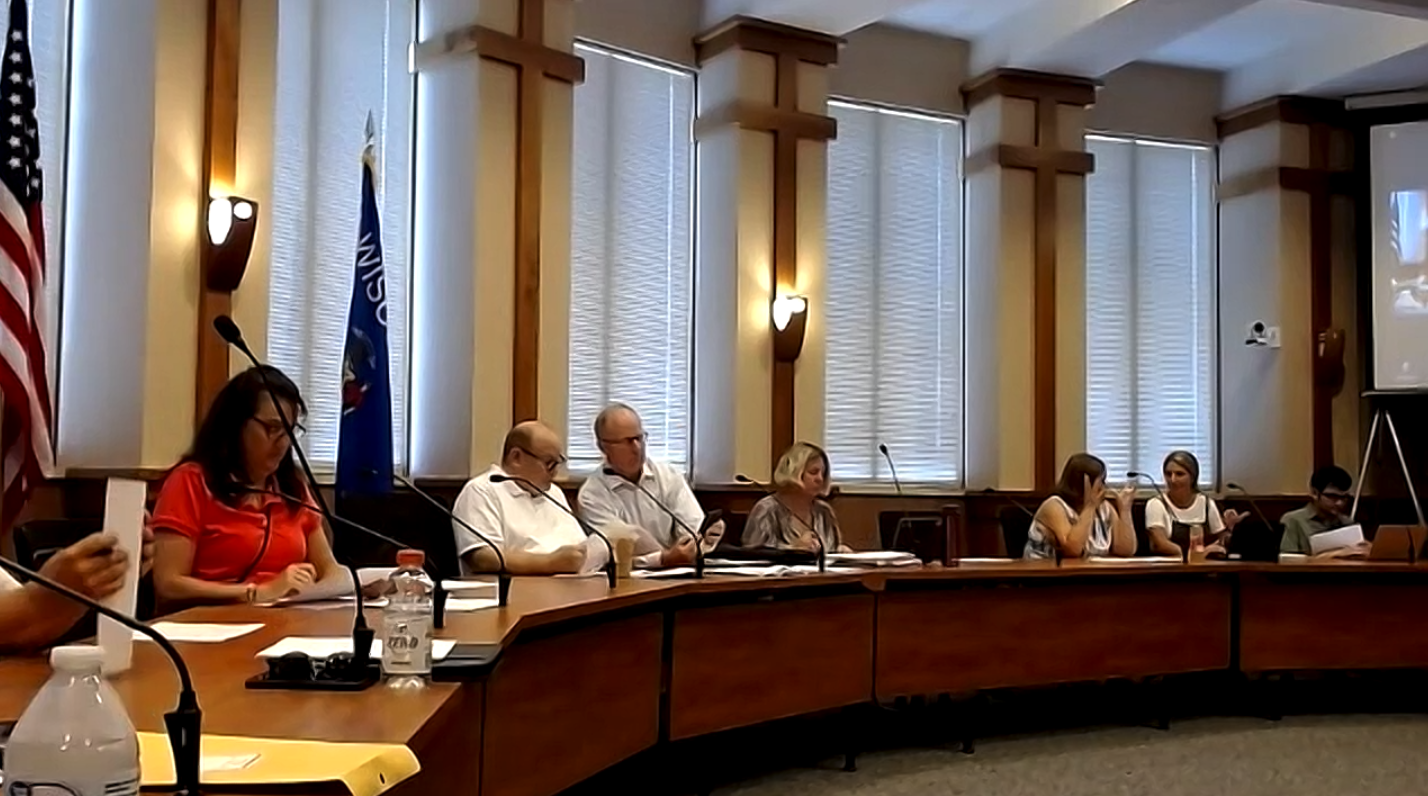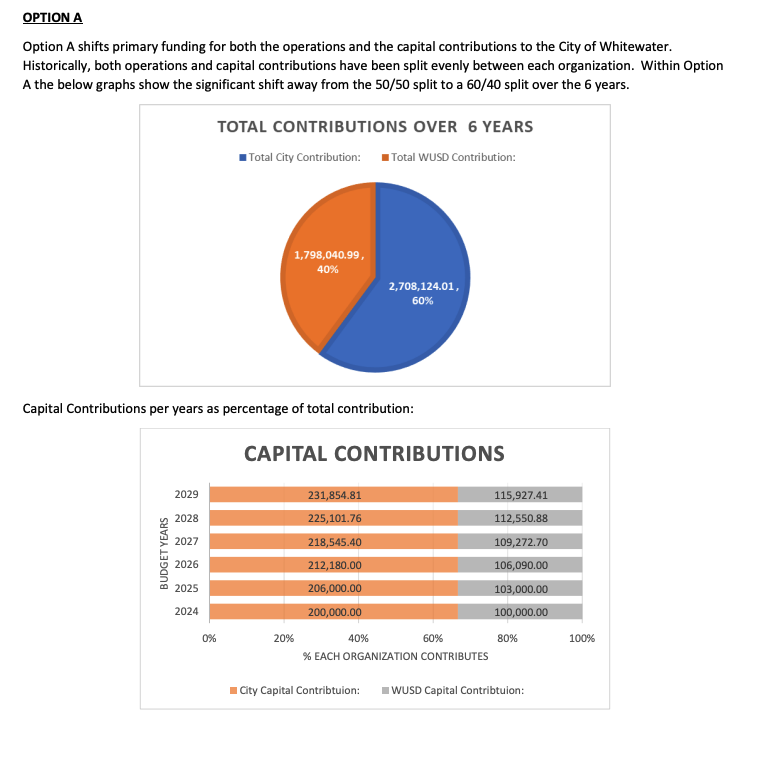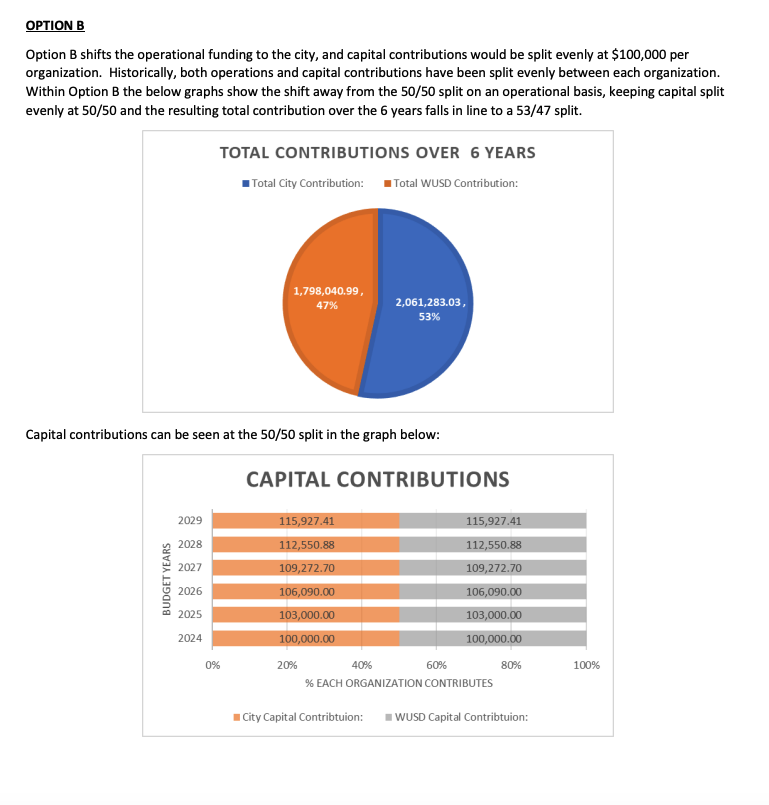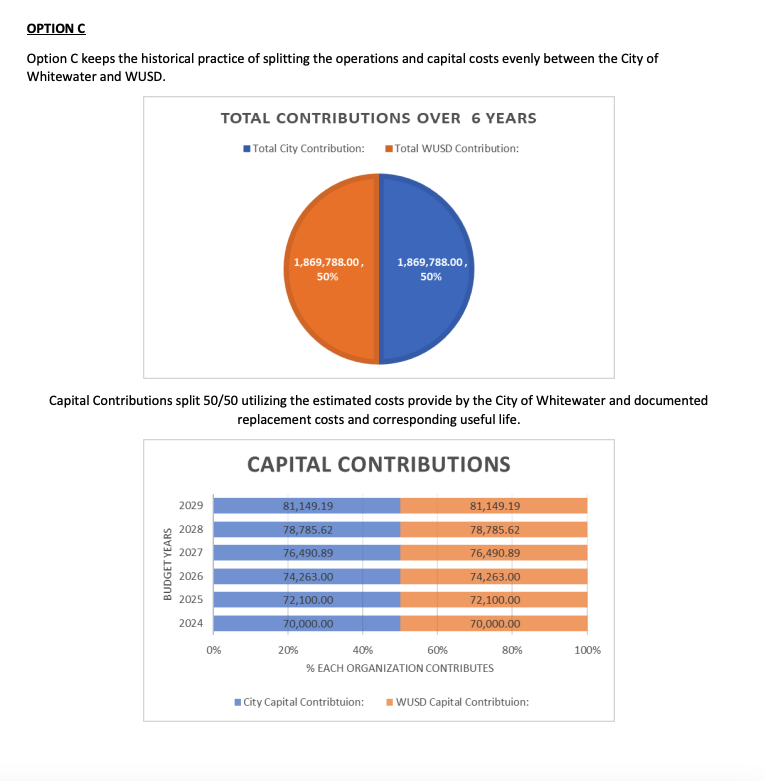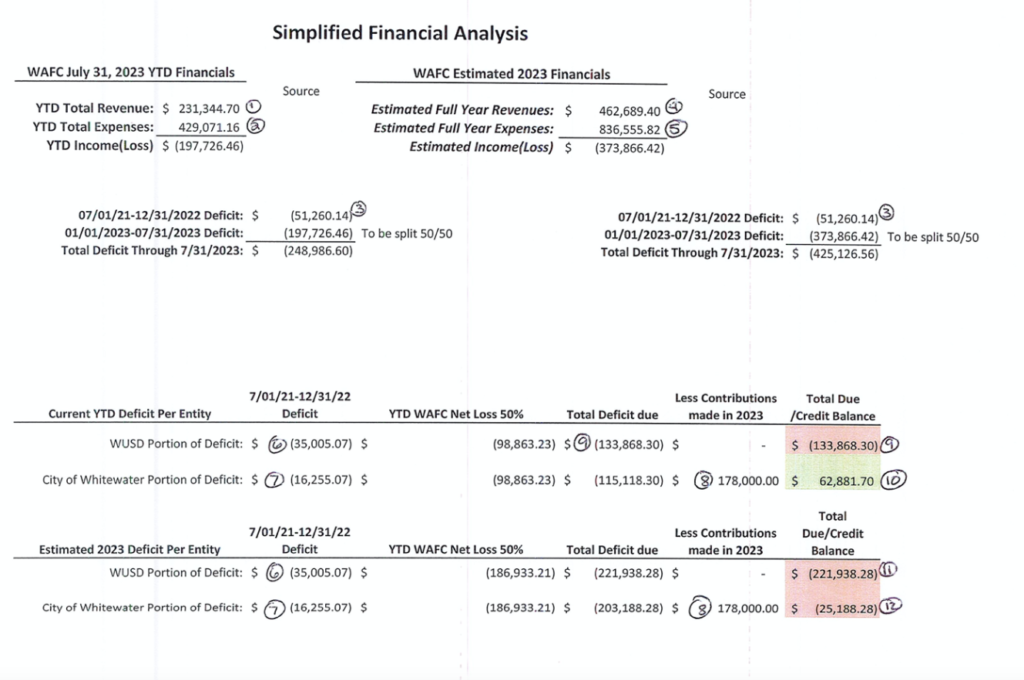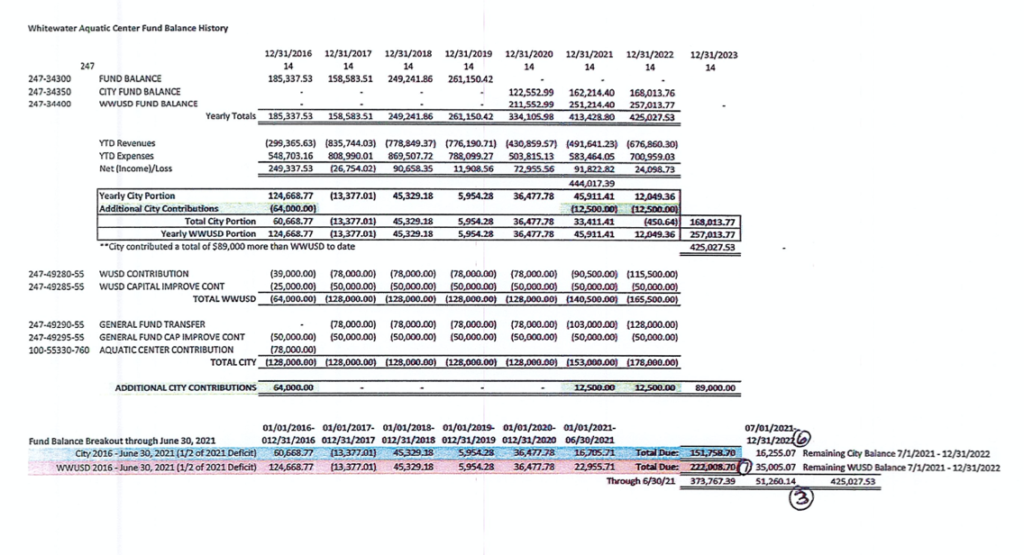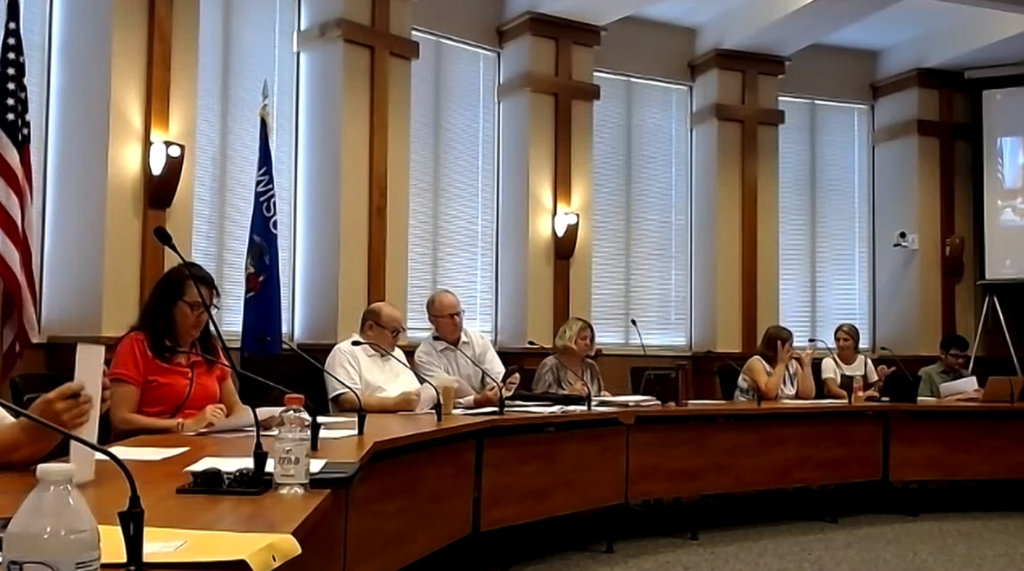By Kim McDarison
The Whitewater Common Council and the Whitewater Unified School District Board of Education have agreed in principle to a six-year lease and operational agreement for the Whitewater Aquatic and Fitness Center.
Members of both parties agreed during a joint meeting held Monday that they could continue their partnership after selecting one of three options presented by the city for a lease and operational agreement, with the council members voting unanimously to accept the option, labeled “Option B,” within their meeting packets, and board members noting that they will bring the matter into closed session for discussion during their next meeting, which is planned for Monday, Aug. 28.
If approved by the school board, the agreement will begin in 2024.
In a followup interview on Tuesday, Whitewater Unified School District Board of Eduction President Larry Kachel said he anticipated that the board will emerge from its closed session meeting next week and announce its decision in open session.
The council approved and the school board will consider Option B, with some contingencies.
The full agreement includes a split in operational obligations such that in 2024, the district will pay $178,000 and the city will pay $258,767. Amounts contributed for operational use by each entity — the school district and the city — will increase annually by 3% to adjust for inflation.
The contract calls for each entity to contribute $100,000 towards capital improvements at the aquatic center. As requested by the district, removed from the contract was an annual 3% adjustment for inflation regarding capital contributions over the course of its first three years, with an option to revisit the annual adjustment for inclusion within the second three years of the contractual period.
The entities agreed that any profits realized by the center annually will be put in a separate fund, with the opportunity to split the profits in accordance with the percentage of operational dollars each entity contributes.
The agreement includes a stipulation that a new committee will be created to oversee aquatic center operations, with that body composed of members from each entity, the board and the council, and members of the community who have some expertise in the aquatic services industry. With the creation of the new committee, the city’s Park and Recreation Board will no longer have oversight and recommending responsibilities associated with the aquatic center.
Discussed, but not included in the motion, was a request by the district to keep the funds contributed towards capital improvements by both entities in a segregated fund which would be managed by the district.
There also was some debate over how much authority the new oversight committee might have. Council members suggested the group would have an advisory role and report to both entities.
Left undetermined was the structure of payments for a remaining balance associated with prior operational debt accrued on the city’s books, which, city officials have said, was traditionally split by the two entities.
The district has said, and the city has agreed, that it will no longer support operational deficits beginning with the new 2024 contract.
In a followup interview on Tuesday, city accountant Jeremiah Thomas, who presented the three proposed contractual options offered by the city and operational deficit numbers to the two entities on Monday, said a full amount owed by the district to bring it to a zero balance regarding the historical and ongoing deficit is $221,938. The number includes a projected and estimated deficit figure of $88,070, which, he said, represents a period between Aug. 1 and Dec. 31 of 2023.
Confusion over deficit amounts
During the meeting, Kachel expressed his frustration over learning new deficit numbers during the negotiations.
Addressing Thomas, Kachel said he understood, after having a recent conversation with City Manager John Weidl, that a final payment to the city from the district to conclude their deficit obligations was $35,000.
Weidl, who, along with Whitewater Unified School District Superintendent Caroline Pate-Hefty, was seated in the gallery, said he had, during their earlier conversation, misunderstood Kachel’s question, and had responded with the understanding that he was asking for the deficit number associated with the close of 2022.
During the meeting, and in a followup interview, Thomas said that the $35,000 figure represented a deficit payment covering a period between July 1, 2021 and Dec. 31, 2022. He said an invoice was sent to the district in April with the amount and the period of time it covered.
Aided Monday by slides, Thomas said that the amount required by the district to pay down the deficit through July 2023 was $133,868.
Within the followup interview, Thomas said he had met Tuesday with Kachel and Whitewater Unified School District Finance and Business Director Ben Prather to explain the full costs associated with the deficit, including the projected amount through to the end of the 2023 contract, which, he said, completes in December.
Next steps
“We have already agreed to Option B in principle,” Kachel said during Tuesday’s followup interview, adding that the city’s figure for outstanding debt presented Monday was new to the district.
Kachel said he believed two separate discussions, one regarding the Option B agreement and a second regarding the operational deficit payment, will take place Monday, Aug. 28, during the board’s closed session meeting.
“Option B is the big things; we are very close,” he said.
The next joint meeting of the two entities is scheduled for Monday, Sept. 11, at 7 p.m., at the Whitewater Municipal Building, 312 West Whitewater St., Whitewater.
